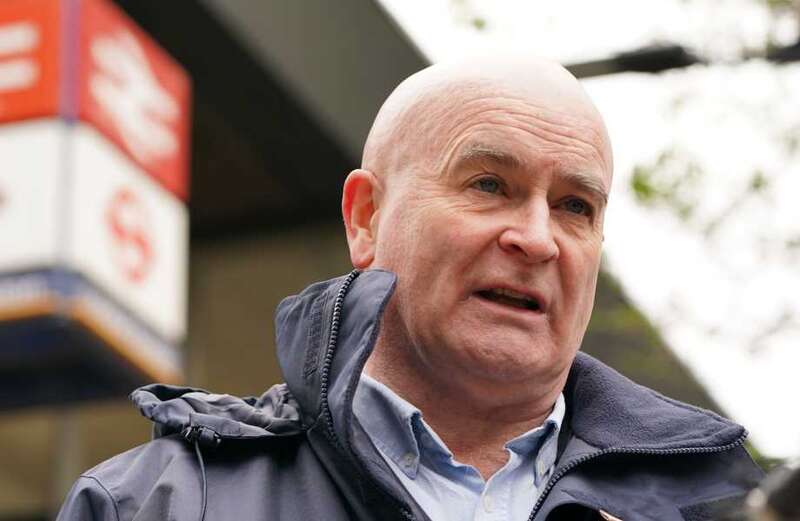MORE train strikes have been announced as part of an ongoing dispute over pay, with many public transport users set to be impacted.
Here's what we know about the latest strikes and which services the industrial action will disrupt.

What are the rail strike dates?
The RMT will be striking on Thursday July 20, Saturday July 22 and Saturday July 29, with around 20,000 workers walking out.
The strikes will have a wide-reaching effect on travel services across the country.
Events such as the Open golf championship at Royal Liverpool Golf Club and the fourth Ashes Test at Old Trafford in Manchester will also be impacted.
 From tongue scraping to saying no, here are 12 health trends to try in 2023
From tongue scraping to saying no, here are 12 health trends to try in 2023
A fresh overtime ban has also been announced by train drivers.
On July 22, and from Monday July 31 to Saturday August 5, members of Aslef at 15 train operating companies will refuse to work overtime in the long-running dispute over pay.
Which train lines are affected by the rail strike?
Members of the RMT will strike at 14 rail companies, including:
- Avanti West Coast
- Chiltern Railways
- CrossCountry
- East Midlands Railway
- GTR (includes Southern, Thameslink, Great Northern and Gatwick Express)
- Great Western Railway
- Greater Anglia (includes Stansted Express)
- LNER
- Northern Trains
- Southeastern
- South Western Railway
- TransPennine Express
- West Midlands Trains
- GTR operates Southern, Thameslink, Great Northern and Gatwick Express
Many services will not run at all on July 20, 22, and 29 - and those that do are likely to be very busy.
The timetables for any running services will start later and finish earlier than on a non-strike day.
National Rail advises travellers to use their Journey Planner to check their route.
The train companies affected by the Aslef overtime ban are:
- Avanti West Coast
- Chiltern Railways
- Cross Country
- East Midlands Railway
- Greater Anglia
- GWR
- GTR Great Northern Thameslink
- Island Line
- LNER
- Northern Trains
- Southeastern
- Southern
- Gatwick Express
- South Western Railway main line
- SWR depot drivers
- TransPennine Express
- West Midlands Trains
The level of disruption from the Aslef overtime ban will vary for different operators.
National Rail has warned passengers to expect "significant disruption" on strike days.
Services are also likely to be disrupted and start later on the day after they finish.
 Spectacular New Year fireworks light up London sky as huge crowds celebrate across UK for first time in three years
Spectacular New Year fireworks light up London sky as huge crowds celebrate across UK for first time in three years
According to the Rail Delivery Group (RDG), most railway station ticket offices are being shut.
Staff will be moved onto station platform and concourse duties and ticket office facilities will remain open only at the busiest stations.
The walkouts are taking place over job cuts and below-inflation pay rises.
RMT general secretary Mick Lynch previously said said: "We've got a cost of living crisis and our workers have been working throughout the pandemic and their reward has been a pay freeze.
"I understand the anger of people - but I also understand the anger of our workers."
When do the train strikes finish?
Saturday, July 29 is the last day of the planned strikes for July 2023.
However, services are also likely to be disrupted and start later on the day after they finish, Sunday, July 30.
The overtime ban will also continue to impact services into early August.
In May 2023 it was reported that rail workers had voted to continue on their strikes for another six months.
Lynch said of the July industrial action: "This latest phase of action will show the country just how important railway staff are to the running of the rail industry.
"My team of negotiators and I are available 24/7 for talks with the train operating companies and government.
"Yet quite incredibly neither party has made any attempt whatsoever to arrange any meetings or put forward a decent offer that can help us reach a negotiated solution."
Previously, an offer of a 4% pay rise over two years was suggested by the RDG and on January 17, 2023, it made its "best and final offer" to the RMT leadership.
This offer included a pay rise of 4% from January 2023 and 5% (or minimum £1,750 rise) backdated to January 2022.
The deal also included changes to work practices.
Union bosses rejected it without putting it to their union members to vote.



































